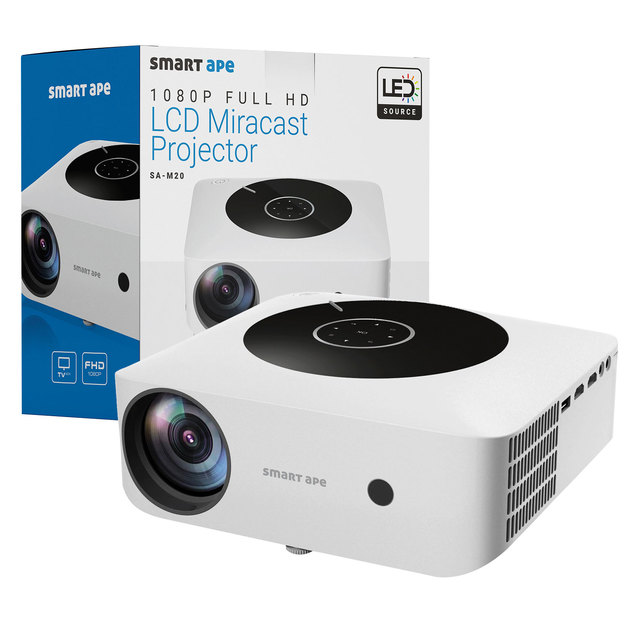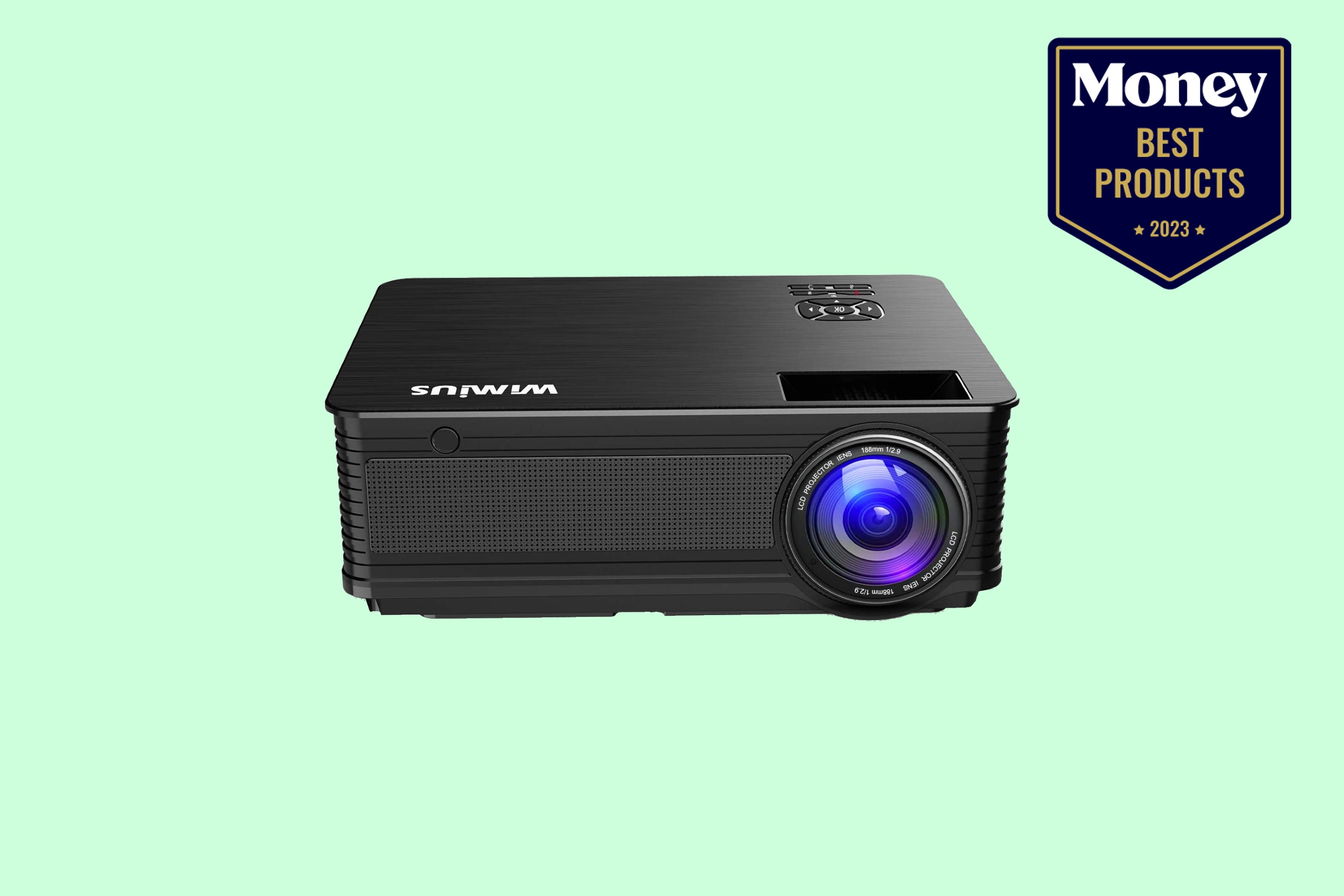DLP Projectors
Digital Light Processing (DLP) projectors revolutionize visual projection with their advanced technology. Utilizing a digital micromirror device, these projectors harness tiny mirrors to reflect light and produce stunning images. Offering exceptional response time and striking color contrast, DLP projectors breathe life into visuals.

DLP projectors are available in a range of options, including single-chip and three-chip variants. Single-chip DLP projectors provide cost-effective performance while delivering impressive image quality. However, they sometimes suffer from the "rainbow effect," where rapid image movements can produce visible color trails. On the other hand, three-chip DLP projectors exhibit superior quality without the rainbow effect. They provide seamless image projection and are ideal for professional settings demanding crystal-clear visuals.
One of the standout features of DLP projectors is their durability and longevity. These projectors are built to last and require minimal maintenance, ensuring hassle-free usage for extended periods. Their inherent sturdiness allows them to handle demanding environments, making them suitable for various applications, from home theater setups to corporate presentations.
The key strength of DLP projectors lies in their exceptional color contrast. They excel in dark room settings, where the vividness and depth of the projected images truly shine. The ability to render deep blacks and vibrant colors creates a captivating visual experience. This makes DLP projectors the preferred choice for movie enthusiasts who crave immersive cinematic adventures.
In conclusion, DLP projectors offer a transformative visual experience that captivates audiences. With their responsive technology, impressive image quality, and robust construction, these projectors are an excellent choice for any setting. Whether it's a personal home theater or a professional presentation room, DLP projectors deliver stunning visuals that immerse viewers in the world of breathtaking imagery.
LCD Projectors
Liquid Crystal Display (LCD) projectors utilize a combination of advanced technology to produce stunning visuals in a variety of settings. By employing a complex system of liquid crystals and advanced light manipulation, these projectors deliver exceptional image quality and clarity.

LCD projectors use three liquid crystal panels, each responsible for controlling the red, green, and blue colors of the projected image. These panels work in harmony to selectively block or allow light to pass through, creating a vibrant and accurate representation of the original content. Unlike other projector technologies, LCD projectors excel in brightness levels, making them a popular choice for environments with ambient lighting.
One of the key benefits of LCD projectors is their ability to showcase detailed graphics with exceptional color saturation. This feature is particularly advantageous when displaying presentations or multimedia content, as it ensures that every minute detail is accurately portrayed. Furthermore, advancements in black level performance have resulted in improved contrast ratios, minimizing the incidence of grayer blacks that were once a limitation of LCD projectors.
LCD projectors are especially suitable for well-lit rooms or environments where controlling ambient light is challenging. The strong brightness capabilities of these projectors enable viewers to experience vivid and bright images without any loss in quality. Whether it's a conference room, classroom, or even a home theater with some ambient lighting, LCD projectors can deliver captivating visuals that stand out.
While LCD projectors have come a long way in enhancing image quality, it's crucial to note that they may have slightly lower response times compared to other technologies like DLP projectors. However, this trade-off doesn't hinder their performance in most applications and is generally not noticeable to the average viewer.
In conclusion, LCD projectors offer exceptional image quality, brightness, and color accuracy, making them an ideal choice for environments with ambient light and a need for precise detailing. With advancements in technology, modern LCD projectors have overcome their previous limitations, delivering stunning visuals that captivate audiences in various settings.
Comparing DLP and LCD Projectors
When it comes to comparing DLP and LCD projectors, it's essential to consider their unique features and differences. Both types have their own strengths and weaknesses, making the decision ultimately dependent on your specific needs.
DLP projectors, utilizing digital micromirror devices, offer exceptional response time and excellent color contrast. These projectors use tiny mirrors to reflect light and create the image, resulting in vibrant and sharp visuals. They come in single-chip or three-chip variants, with the latter providing higher quality and avoiding the potential "rainbow effect" caused by color wheels. DLP projectors also boast durability, long lifespan, and low maintenance requirements.
On the other hand, LCD projectors work by passing light through liquid crystal panels for the primary colors. They excel in brightness and are well-suited for rooms with ambient lighting. LCD projectors offer exceptional image clarity, color saturation, and improved black level performance in newer models. While they may have previously struggled with contrast, recent advancements have addressed this issue.
When considering DLP versus LCD projectors, some key factors stand out. DLP projectors have faster response times, ensuring a seamless viewing experience without motion blur. They are particularly effective in dark environments and deliver impressive color contrast. However, DLP projectors may be prone to the "rainbow effect" in single-chip models, which can be distracting. Additionally, occasional filter maintenance may be required.
On the other hand, LCD projectors produce vivid and realistic images with high color saturation, making them ideal for well-lit settings. These projectors have better light efficiency and are less affected by the "rainbow effect." However, they might have lower contrast levels compared to DLP projectors.
Ultimately, the choice between DLP and LCD projectors depends on your specific preferences and needs. If you prioritize contrast and plan to use the projector in a darker room, DLP might be the better option. On the other hand, if you value color accuracy and brightness in a well-lit environment, LCD projectors are the way to go. Consider evaluating these aspects and choose the projector that aligns with your requirements for an optimal viewing experience.
Conclusion
In the realm of DLP vs LCD projectors, making the right choice comes down to tailoring your decision to meet specific requirements. If your goal is to set up a projector in a dimly lit environment with an emphasis on vivid colors and heightened contrast, DLP projectors are the way to go. However, if color accuracy and brightness take precedence, especially in a well-lit room, LCD projectors are the optimal choice. Ultimately, selecting between these two technologies depends on your unique needs and preferences. So, carefully consider the setting and purpose of your projector usage to make an informed decision that aligns perfectly with your expectations.
FAQS
Which is Brighter?
DLP projectors are generally considered to be brighter than LCD projectors. They excel in creating vibrant and sharp visuals, making them ideal for environments with low ambient lighting. DLP projectors offer excellent color contrast and are particularly effective in dark rooms, allowing the projected images to truly shine.
Which Projector is Better for Gaming?
Both DLP and LCD projectors can provide an immersive gaming experience. However, DLP projectors often have faster response times and superior motion handling, making them a popular choice for gaming enthusiasts. With their excellent color contrast and low input lag, DLP projectors can deliver seamless and engaging gameplay. It is also important to consider factors like brightness, resolution, and connectivity options when selecting a projector for gaming.
